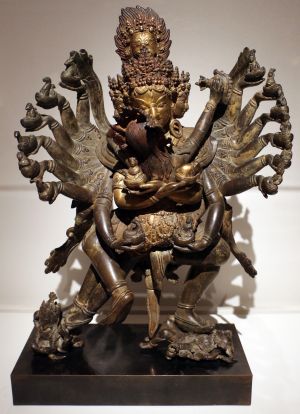Baseball and Buddhism
Baseball is a game of numbers. Three outs per inning, nine innings per game. Each team fields nine players. Each batter is allowed a maximum of three strikes or four balls. A batting average is calculated for every batter to the 10th of a percent. A pitcher's earned run average is calculated to the 100th of a percent. For the baseball fan there is also the 7th inning stretch. Baseball is a game of numbers.
Buddhism, too, also involves a lot of numbers. For example, the Pure Land of Amida Buddha is said to be found in the Westward direction. West is one of ten directions that Buddhism speaks of. The other nine are: North, East, South, North East, North West, South East, South West, Up, and Down. Here are more numbers used in Buddhism.
Buddhism began when Sakyamunl Buddha became Enlightened and after he gave his first sermon on the Four Noble Truths.
2. There is a cause for this suffering
3. There is an end to suffering
4. There is a path to end suffering (Eightfold Path)
Within the Four Noble Truths is the teaching of the Eighthfo1d Path, or the Path to end Suffering.
1. Right View
3. Right Speech
6. Right Effort
The number of Buddhas that are said to exist in each of the ten directions is equal to the following number (Wherever we may go there is always the Truth of Nembutsu).
These and other Buddhas that number like the grains of sand of the Ganges River show their long tongues in their respective lands and preach of this true and real word (Namo Amida Butsu) so that it can be heard throughout the three thousand worlds. (Amida-kyo).
In order to establish Jodo Shinshu, Shinran especially relied on the teachings of these Seven Masters known as the Seven Patriarchs.
2. Tenjin/Vasubandhu (India)
There are 48 Vows made by Amida Buddha, but the Primal Vow, what is known as the Hongan (this is where the name "Hongwanji" comes from), is number 18.
This Vow 18 reads: "Even if I were to achieve Buddhahood and those beings of the ten directions with a directed heart (towards Truth), with the faith of Joy, and a desire to be born in my land, say my name upwards of ten times and are not thus born (in my land), then I will not accept the True Awakened (state of Enlightenment)."
Source
[[1]]
